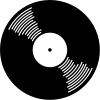Talk:Hot R&B/Hip-Hop Singles Sales
| This redirect does not require a rating on Wikipedia's content assessment scale. It is of interest to the following WikiProjects: | |||||||||||||||
| |||||||||||||||
Not sure if this article is accurate, it sounds speculative. The whole "contrary to popular belief" section sounds like POV, too. The R&B/Hip-Hop charts are indeed a separate core panel of sales outlets catering to the R&B market, but the Hot 100 encompasses ALL genres... R&B/Hip-Hop, Country, Latin, Dance, Adult Contemporary, etc., etc., so to insinuate that the R&B sales in some way don't count towards the sales totals that help to make up the Hot 100 sales component isn't correct.
Is there a source for this statement?
Speculative? Huh? Sorry, maybe I could have phrased it better, but I think you and I are on the same page. What you're saying is exactly what I'm trying to say, that this chart is only for urban markets and that the Hot 100 Singles Sales is for all markets. I'm just saying that the sales here are not an exactly subset (and many times people think they are). Like that if a single by an urban artist goes to #1 on the Hot 100 Singles Sales, it doesnt nessacarily mean that it will go to #1 on this chart, because its not an exactly subset. Another song could have higher sales in the urban market, but lose in the overall sales chart. OmegaWikipedia 14:58, 16 July 2005 (UTC)
- Yes, you understand what I was trying to say, I'm afraid I wasn't being very clear either - plus I forgot to sign my name, but that's what I get when I start critiquing articles at 4AM. Just seems to me like the description of this chart needs to be more definitive to illustrate that only certain markets are monitored for specialty-genre charts (not just R&B, but country, dance, etc.), and the "contrary to popular belief" phrase should be taken out. Oh, and this applies to the R&B Airplay chart article, too. :)


